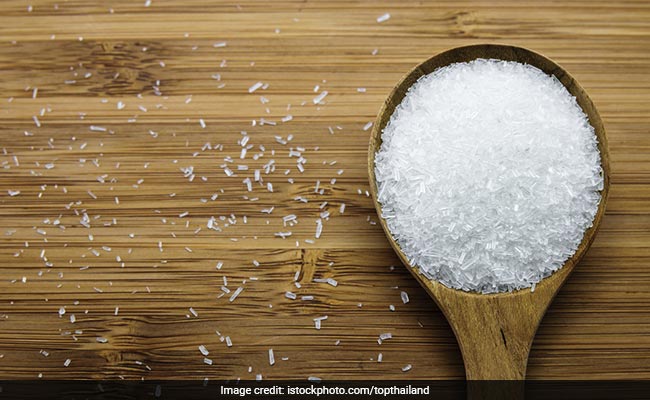Excess intake of sodium glutamate (also known as MSG) has been linked to increased cravings, overeating and obesity.

Canned foods usually contain added sodium glutamate
HIGHLIGHTS
- Sodium glutamate has same effect on brain cells as drugs
- The salt is added in foods like chips, sausages, beer, etc.
- It can cause dizziness, hypertension and even diabetes
Sodium glutamate or monosodium glutamate is one of the most common additives used in manufactured foods and is used widely in foods served at restaurants. It is also present in some foods naturally and is usually present in the form of a white crystalline powder and looks very similar to salt and sugar. Since Monosodium glutamate is a flavour enhancer, it enhances the meaty taste of food items making he food tastier. It has an excitatory effect on the nerve cells, hence inducing over-eating. "By itself, MSG may be safe in very small doses but it could be harmful even in minute amounts for those who are allergic or sensitive to MSG. Large doses are certainly harmful. The point noteworthy is that MSG is present in large amounts in processed food items like chips, packaged soups, canned foods, which by themselves are unhealthy and thus they must be avoided (not just because they have MSG). One must check food labels while buying any packaged stuff and avoid buying if MSG is listed", says nutritionist Pooja Malhotra.
According to her, "Chemically, there is no difference between the one found in natural foods and the one in processed foods. Yet as an additive, it may be harmful because of the large doses or the other components in processed foods." Some of the food items which contain sodium glutamate are canned foods, sausages, chips, prepared soups, hot dogs, beer and many more. It is also naturally present in food items like cheese, tomatoes, peas, walnuts, wheat etc. An excess intake of sodium glutamate has been linked to increased cravings, overeating, obesity and other metabolic disorders.
Pooja Malhotra lists the other harmful effects of consuming excess of MSG:
1. Research says that over 2,00,000 tons of sodium glutamate is used all across the world. Excess consumption of this salt can cause problems like migraine, dizziness, hormonal imbalance, nausea, weakness, chest pain and much more.
2. Affecting our tongue receptors, sodium glutamate makes food tastier than it actually is and you want to have more and more of it leading to weight gain and obesity.
3. It makes us addicted to food in a way that we feel like eating anything and everything that we get when we feel hungry. Sodium glutamate has the same affect on the brain cells as drugs.
4. Indirect long term effects can include obesity and other metabolic disorders. Some studies have shown that there has been an increased number of cases of diabetes because of sodium glutamate in food.
5. Malfunctioning of the adrenal gland, high blood pressure or hypertension and stroke are other risks that can be caused by excessive consumption of sodium glutamate.
6. Other harmful effects include acute headache, muscle tightness, numbness, tingling sensation, flushing, weakness.
Avoid buying foods which have added MSG in them!
(Pooja Malhotra is a Delhi based Nutritionist)
Disclaimer: This content including advice provides generic information only. It is in no way a substitute for qualified medical opinion. Always consult a specialist or your own doctor for more information. NDTV does not claim responsibility for this information.
DoctorNDTV is the one stop site for all your health needs providing the most credible health information, health news and tips with expert advice on healthy living, diet plans, informative videos etc. You can get the most relevant and accurate info you need about health problems like diabetes, cancer, pregnancy, HIV and AIDS, weight loss and many other lifestyle diseases. We have a panel of over 350 experts who help us develop content by giving their valuable inputs and bringing to us the latest in the world of healthcare.














